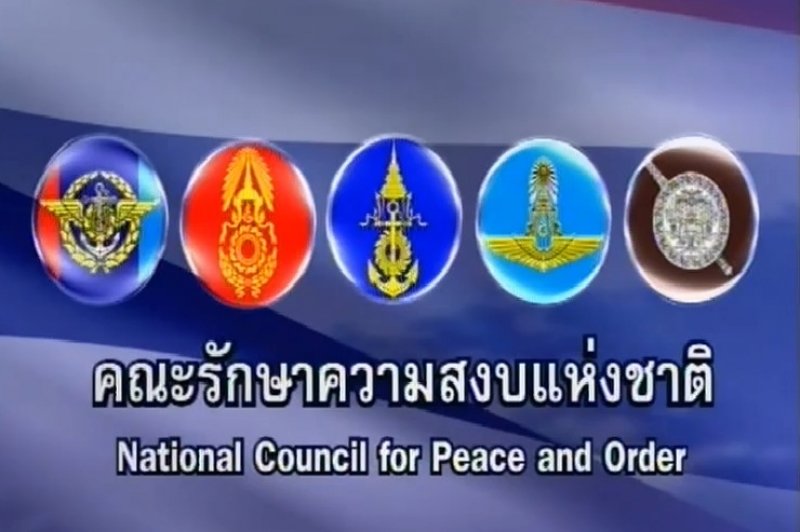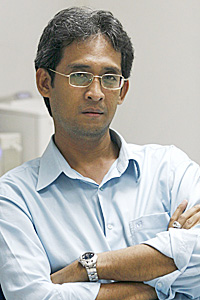
In a bid to ensure the public is well-informed about the government's work and accomplishments over the past three years, Prime Minister Prayut Chan-o-cha ordered a 12-episode special television series which kicked off on Sunday.
The special edition of Moving Thailand Forward, with each episode lasting at least half an hour, is on the TV Pool. In other words, it's compulsory broadcasting, where the government will spend six hours boasting about its successes.
Anyone who can spend six hours explaining what he has done must have a lot to say about his work.
There is no doubt that the prime minister and the regime have put enormous efforts into developing the country and trying to restore peace. Some initiatives were aimed at making fundamental changes and many have started to bear fruit.

Soonruth Bunyamanee is deputy editor, Bangkok Post..
The latest IMD World Competitiveness Ranking shows Thailand has performed better, moving up one notch in the rankings from 28th last year to 27th this year. There are 63 nations and economies included in the rankings.
Despite climbing only one step in the index, details about the factors that brought about the improvement, however slight, are rather interesting given they include economic performance and government efficiency.
The improved economic performance is basically a result of state investment in infrastructure development projects, as the country's exports are in the initial stage of recovery and private investment is still in the doldrums.
Meanwhile, improvements in government efficiency must be connected with a number of new laws and regulations, particularly the promulgation of five new laws to help ease business transactions, as well as strong law enforcement against corruption.
This enabled the Finance Ministry to boast about the higher-than-expected GDP growth of 3.3% in the first quarter of this year.
Though the figures indicate a stronger economy, the public have yet to feel the difference.
In fact, we can say the advantages are still limited to large business operators and exporters who have reaped benefits from state projects while small and medium-sized businesses and their workers as well as farmers and people at the grassroots level -- all major economic stakeholders -- have not yet seen their share of economic recovery.
This may explain why the government's economic performance got poor ratings in every opinion survey.
Besides, even though the government has introduced several schemes to support those at the grassroots level, state mechanisms involved in resource distribution are still ineffective; not to mention the fact that some state officials are reluctant to translate policies into action.
Under the military regime, civil officials are stressed from the "fear factor". The threat of abrupt transfer orders, under military-style management, makes many officials exercise extreme precaution that affects project outcomes.
For instance, the government has set a target to increase the numbers of Pracharat (people-state partnership) community markets and shops in the provinces. It was found that some officials did nothing but attach "Pracharat Market" and "Pracharat Shop" signs at existing markets and shops. They simply didn't bother to develop new markets under the people-state partnership concept.
For tourism development, Pracharat booths were set up in Bangkok and other provinces, so they would serve as marketplaces for souvenirs in each tourism destination. Several of them have been left vacant.
Once again, many state officials shifted into inactive mode, known as "neutral gear", now that the country is moving toward an election. This means that a number of civil servants would prefer to wait for new directives from a new government. Like it or not, the fact is they just want to wait and see whether the next government will continue or discontinue the previous administration's projects.
In terms of capability, a number of state officials have been found to lack the skills and understanding necessary for the government's goal of achieving Thailand 4.0.
These are problems hindering the implementation of government policies that has caused our competitiveness ranking to slip. That includes the IMD World Digital Competitiveness Ranking which dropped to 41 this year from 39 the previous year.
Thailand was rated poorly in several areas, including software piracy, IT education, e-government and workers' skills in digital technology.
This digital competitiveness ranking shows the government's Thailand 4.0 policy is still far from taking effect.
Last but not least, the tip of the iceberg which was not taken into account in the competitiveness ranking is inequality, both social and economic.
Bank of Thailand governor Veerathai Santiprabhob recently admitted inequality remains a problem. According to the governor, 10% of the country's richest hold 22 times the wealth of those in the poorest group combined, and they also own 60% of the country's land. In addition, less than 2% of the population holds 80% of total cash deposits in the country.
In terms of social issues, only 4% of people in the poorest group can access university-level education.
I hope that in the 12-week presentation of the regime's three years of accomplishments, we will see that those agencies involved address the chronic problems and come up with solutions.
